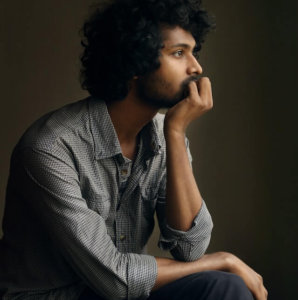The Beauty of Boredom-Embracing Slow Days as Spiritual Space

What if boredom isn’t a problem to solve—but an invitation?
We’re taught early on that boredom means something’s wrong. We should be doing more, moving faster, staying busy. “Idle hands…” the saying goes.
But what happens when a long afternoon stretches out in front of you and there’s no task to tackle, no noise to fill the air?
Most of us reach for something—anything—to make the emptiness go away. The phone. The fridge. The television remote. Even a to-do list we don’t care much about.
But here’s a question I’ve been sitting with: What if boredom is actually something we need more of?
Boredom Isn’t What You Think
I tend to think of boredom as the absence of stimulation. But that’s not quite right. It’s not about having nothing to do—it’s about not being distracted.
When I stop filling empty space, I start to notice the silence. And often, that makes me nervous. I suspect I may not be the only one.
In truth, boredom is a kind of pause. It’s the body slowing down, the mind wandering, the day unfolding without expectation. It’s what happens when we step off the treadmill of usefulness and let ourselves just be. Not for a higher purpose. Not to become more productive later. Just… to be.
And that’s harder than it sounds.
Slowing Down on Purpose
I had one of those “nothing” days last winter. A storm had blown through and knocked out the power. I couldn’t write, couldn’t scroll, couldn’t even make a decent cup of tea.
The house was quiet. Too quiet! My first instinct was frustration. Then restlessness. Then, finally, something else.
I watched the snow pile up. I wrapped myself in a blanket and listened to the house creak. I sat. And sat. And something shifted.
I don’t want to turn this into a magical moment. It wasn’t. But it was real.
It reminded me of something I often forget:
I am not defined by how much I accomplish in a day.
That quiet didn’t solve anything. But it softened the edge of my impatience.
The Spiritual Space We Didn’t Know We Needed
Spiritual practices across traditions make room for silence, for retreat, for slowing the pace. Not because it’s efficient. Because it opens up something deeper.
In that stillness—boredom, if you want to call it that—I begin to see what I’ve been running from.
- The sadness that’s been lurking under the surface.
- The memory I’ve been avoiding.
- The desire I didn’t even know was there.
This isn’t always pleasant. In fact, it’s often uncomfortable. But it’s honest. And maybe honesty is the beginning of something holy.
Why We Avoid Boredom
There’s a voice inside many of us—especially those who’ve spent years caregiving, working, and managing homes and relationships—that says, “You should be doing something.”
When I retired, I noticed how loud that voice had gotten. Even when my body was tired or my mind was foggy, I still felt like I had to prove I was useful.
Here’s the truth: that voice doesn’t go away easily. But it can be questioned.
What if being still isn’t a waste of time? What if it’s the time when the real work—inner work—finally has space to breathe?
What Boredom Makes Room For
A slow afternoon can become many things: a time to rest, to remember, to pray without words.
It’s not glamorous. You won’t get a certificate for it. But over time, you might notice something surprising.
I find that from this quiet place, I am more grounded. More attentive. More alive to the small things.
I hear the birds outside my window instead of the buzz of my phone. I see the shadow shifting across the floor as the day passes. I realize the world is still turning, even if I don’t do anything at all.
That’s not nothing. That’s a kind of quiet reverence. That’s the gift of boredom. Depending on your tradition, you might find these moments to be Sabbath Rest.
Try This
If you’re curious—or maybe just tired of keeping busy—try a small experiment.
Find ten minutes today to do nothing.
Not meditate. Not journal. Not plan. Just sit. Let your thoughts wander. Let the silence stretch. If it feels awkward, that’s fine. If it feels long, good. Stay with it anyway.
Then ask yourself: What did I notice when I stopped trying to be useful?
You might not get an answer. But something in you will have shifted.
Final Thoughts
Boredom isn’t an enemy. It’s not a sign that you’ve lost your spark. It’s a sign that there’s space.
And space is where the sacred things grow.
We don’t always need more activity, more goals, more stimulation. Sometimes we need to sit quietly until the dust settles—and see what’s left.
Maybe that’s the real work of this season of life. Not to keep pushing. But to pause. To wait. To let the beauty of an unfilled day do its quiet work in us.
Want More?
Watch your mailbox for a notice of a journaling circle coming soon. It will be open to anyone at no cost. We will practice slowing down and listening to what our lives are trying to tell us.
We don’t have to be productive. We just show up.
And sometimes, that begins with doing… nothing.
If this idea of boredom as spiritual space resonates with you,
I invite you to explore it further.
Come read more reflections on
The Reflective Pen.

